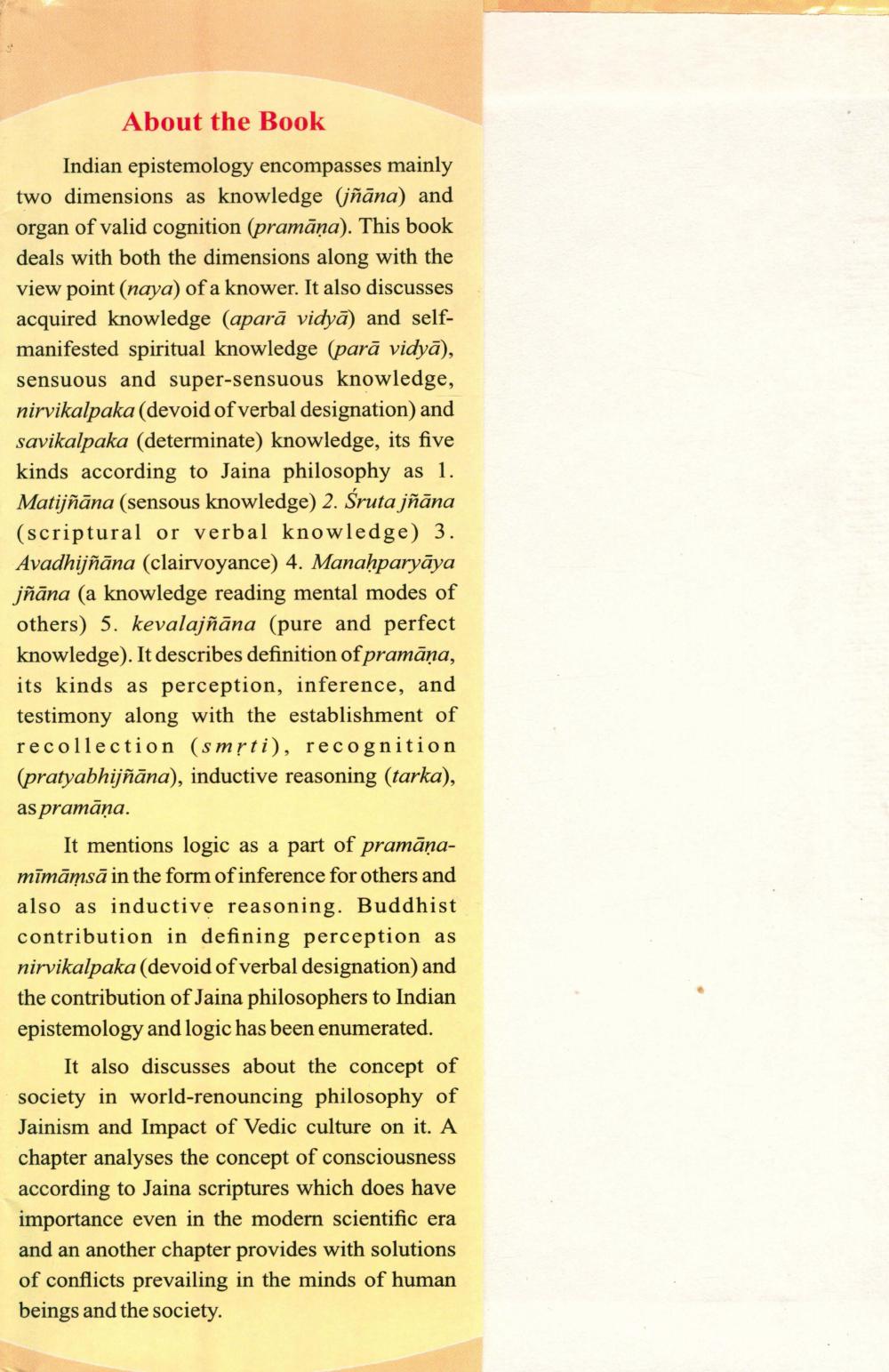Book Title: Society Epistemology And Logic In Indian Tradition Author(s): Dharmchand Jain Publisher: Prakrit Bharati Academy View full book textPage 2
________________ About the Book Indian epistemology encompasses mainly two dimensions as knowledge (jñāna) and organ of valid cognition (pramāna). This book deals with both the dimensions along with the view point (naya) of a knower. It also discusses acquired knowledge (apara vidya) and selfmanifested spiritual knowledge (parā vidyā), sensuous and super-sensuous knowledge, nirvikalpaka (devoid of verbal designation) and savikalpaka (determinate) knowledge, its five kinds according to Jaina philosophy as 1. Matijñāna (sensous knowledge) 2. Śruta jñāna (scriptural or verbal knowledge) 3. Avadhijñāna (clairvoyance) 4. Manaḥparyaya jñāna (a knowledge reading mental modes of others) 5. kevalajñāna (pure and perfect knowledge). It describes definition of pramāṇa, its kinds as perception, inference, and testimony along with the establishment of recollection (smrti), recognition (pratyabhijñāna), inductive reasoning (tarka), as pramāņa. It mentions logic as a part of pramāṇamīmāmsā in the form of inference for others and also as inductive reasoning. Buddhist contribution in defining perception as nirvikalpaka (devoid of verbal designation) and the contribution of Jaina philosophers to Indian epistemology and logic has been enumerated. It also discusses about the concept of society in world-renouncing philosophy of Jainism and Impact of Vedic culture on it. A chapter analyses the concept of consciousness according to Jaina scriptures which does have importance even in the modern scientific era and an another chapter provides with solutions of conflicts prevailing in the minds of human beings and the society.Page Navigation
1 2 3 4 5 6 7 8 9 10 11 12 13 14 15 16 17 18 19 20 21 22 ... 212
